In pictures: Defying Mozambican jihadists to go to school
- Published
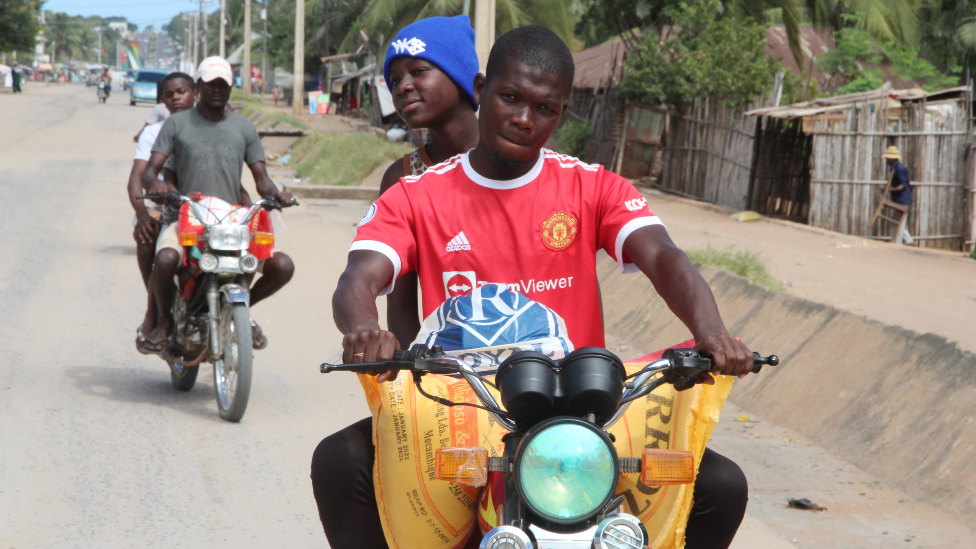
Some of the motorbike taxi riders in Pemba, who rule the roads of the Mozambican port city, have fled jihadist violence - escaping from an insurgency further north that has devastated their hometown of Mocímboa da Praia.
The mota taxis, as they are known locally, far outnumber Pemba's motorists - who tend to complain that they are a menace. But the work is a lifeline for the young men who fled their homes, more than 325km (200 miles) away.
Pelé Bambina, aged 20, ferries customers on a motorbike in between school lessons.
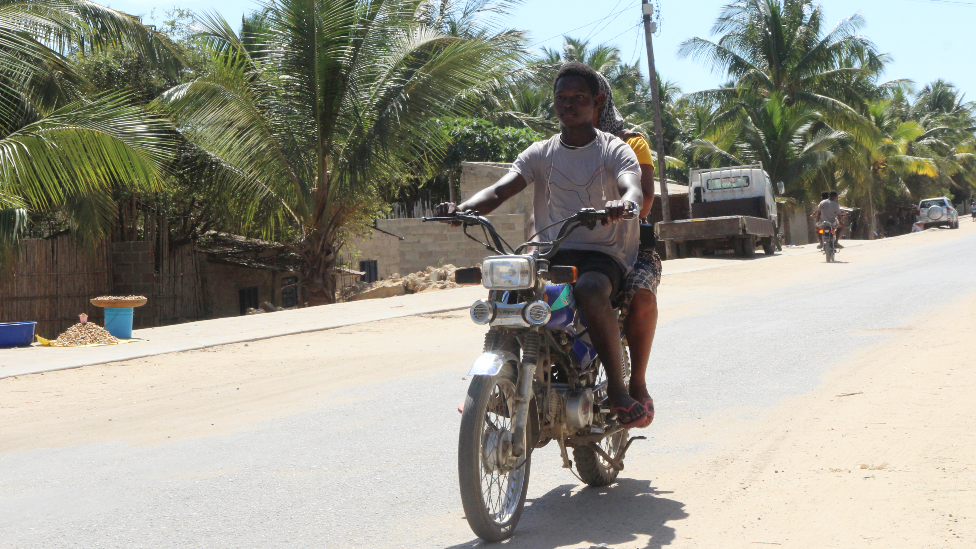
Schools were forced to close in Mocímboa because of the conflict, which began in October 2017.
The main secondary school and many primary schools were vandalised and destroyed during the attacks by Islamist militants that intensified two years ago, prompting Pelé to leave.
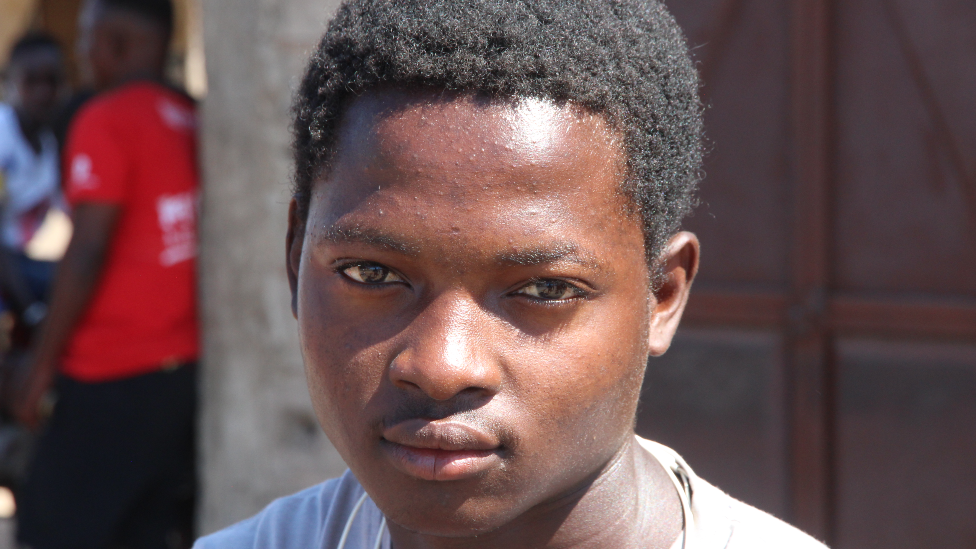
"I came by boat in June 2020. From the time when the war started, I stopped feeling safe. Things were bad."
He and his family are Muslim - like the majority of inhabitants in Cabo Delgado province - but this did not stop them being targeted. One of Pelé's male cousins was abducted and is still missing, and two of his relatives were raped during attacks.
Pemba, the capital of Cabo Delgado, has escaped militant occupation - but has become a refuge for hundreds of thousands of people.
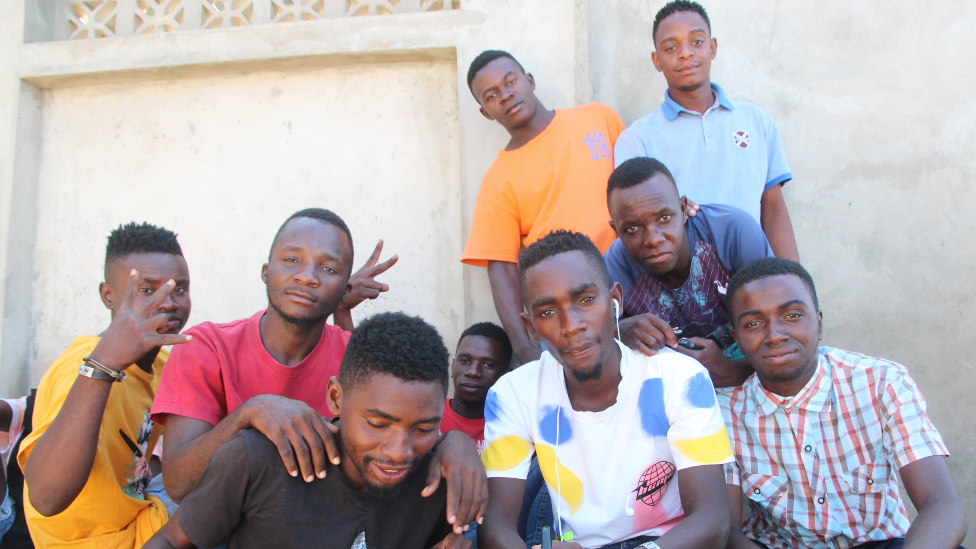
Pelé now hangs out with other mota taxi riders opposite the market in Pemba's Emulação area, where the roadside is lined with their parked motorbikes.

The drivers chat and play a Lotto game on their phones, waiting for work or hoping for a small gambling windfall.
All these men, who are in their early 20s, are from Mocímboa.
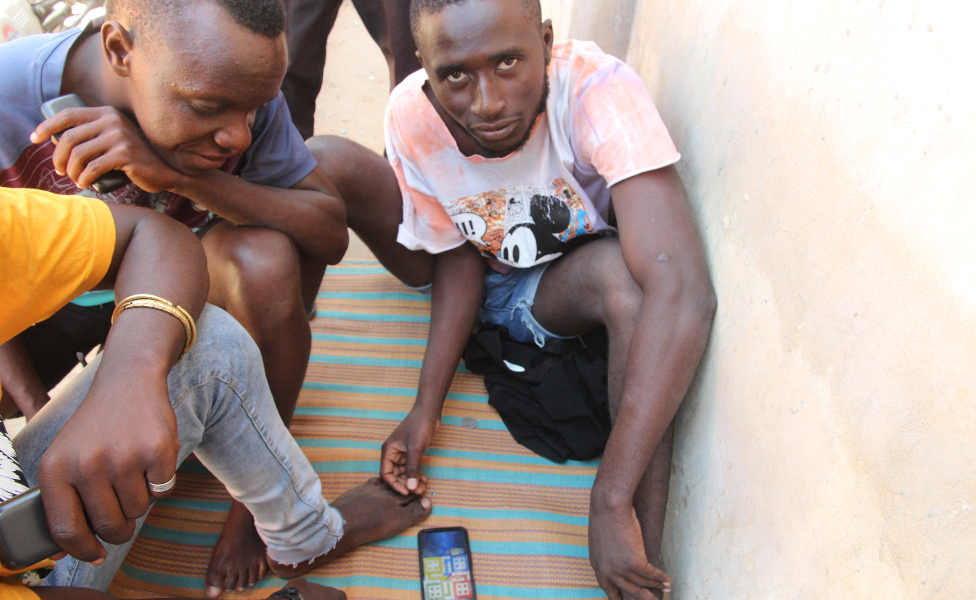
"I was the first of my family to leave. I came on my own," says Pelé.
"To start I did not know anyone else on the boat with me. I wanted to get out even if it meant coming here and suffering; and so as soon as I got a chance to leave, I didn't look back."
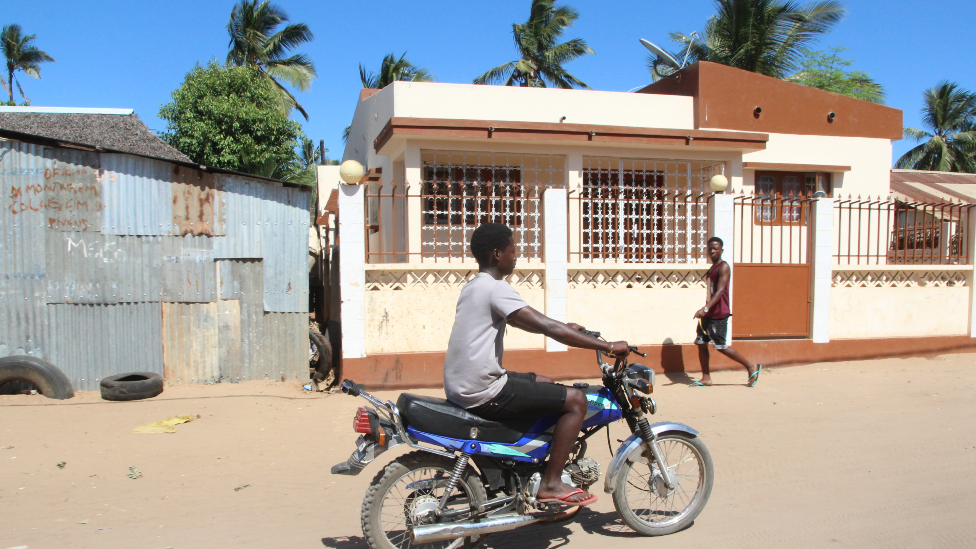
When he first arrived, Pelé found it difficult to make ends meet and was determined to finish his interrupted schooling.
"I began working in a hair salon, but always waiting for month-end to be paid, I wasn't surviving. I needed money to eat, to get things for school." He also tried selling snacks and street food but the profits were too low.
His family joined him two months later and it was a difficult time for them.
Things changed for the better a year ago: "One day I was here visiting my friends, when a man asked me if I knew how to ride and if I was willing to work."
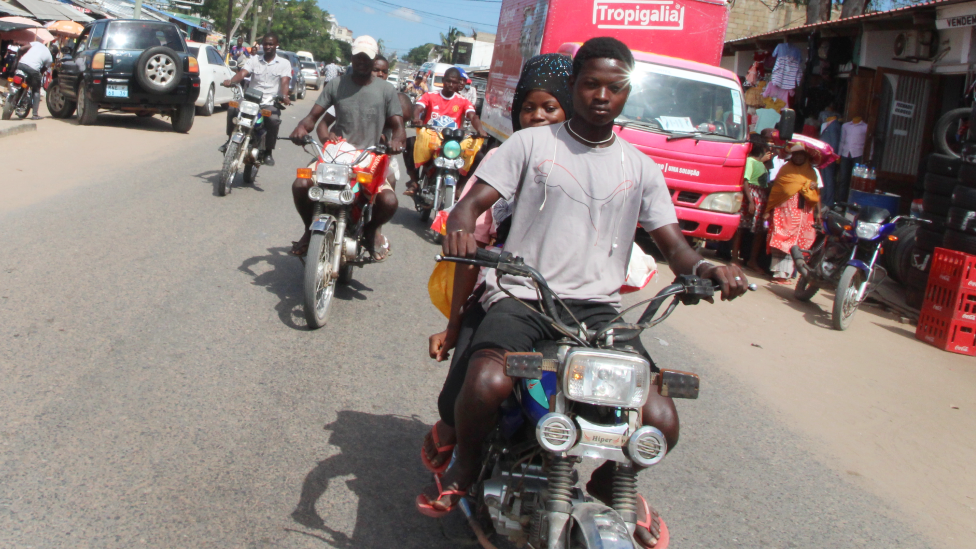
A good condition, used motorcycle currently costs 30,000 Mozambican metical ($470, £372) - so those who can afford it often buy them and rent them out to riders.
"It works on a daily basis, where per day I give the owner 200 metical and the remaining amount I keep. Sometimes I can make 400 metical, sometimes 200 metical, sometimes nothing. It's God's luck. The days are never the same. Last Saturday I made 700 metical - I was top!" says Pelé.
With an average income of about $3 a day he supports seven adults and eight children, living in one rented house in the Ingonani neighbourhood. Like most of his mota taxi peers, he is the only one in his family with a job.

He also has to buy school uniforms, exercise books and stationery with this.
Pelé, named after the Brazilian legend as his late father was a big football fan, goes to school every weekday afternoon from 14:00 until 18:00. Schools operate on a shift basis to accommodate all the extra pupils.
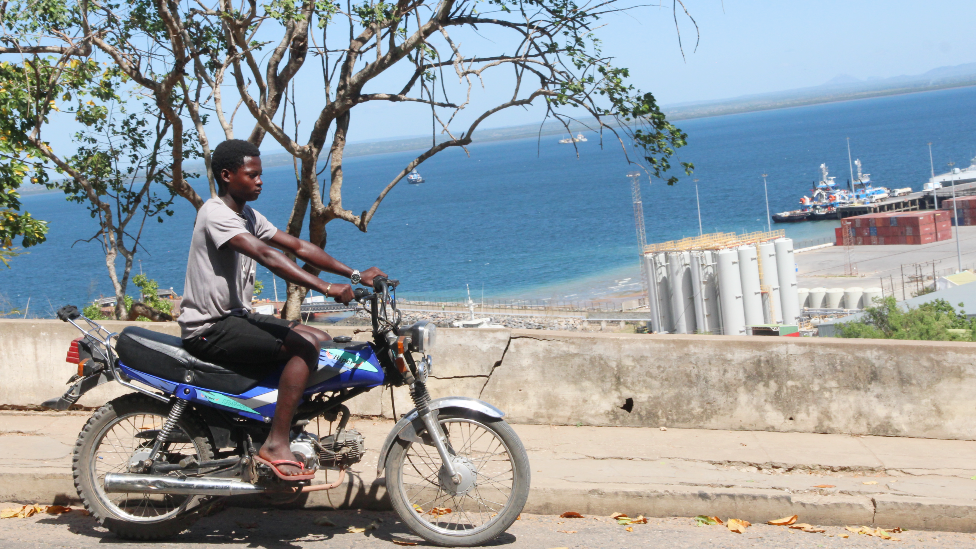
He finds it is good to get regular clients - and now has five, who also pay him to run errands.
Payments are mostly via mobile money transfer.
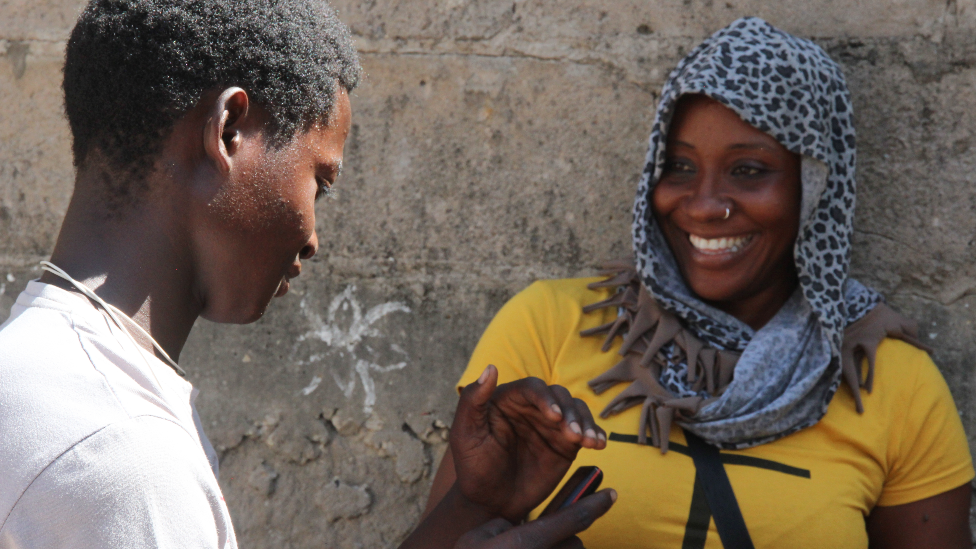
One of his colleagues, 22-year-old Amade Bacar, who has a wife and 18-month-old child, says it is a struggle to manage on the money.
He would rather work as a mechanic like he did back home in Mocímboa.
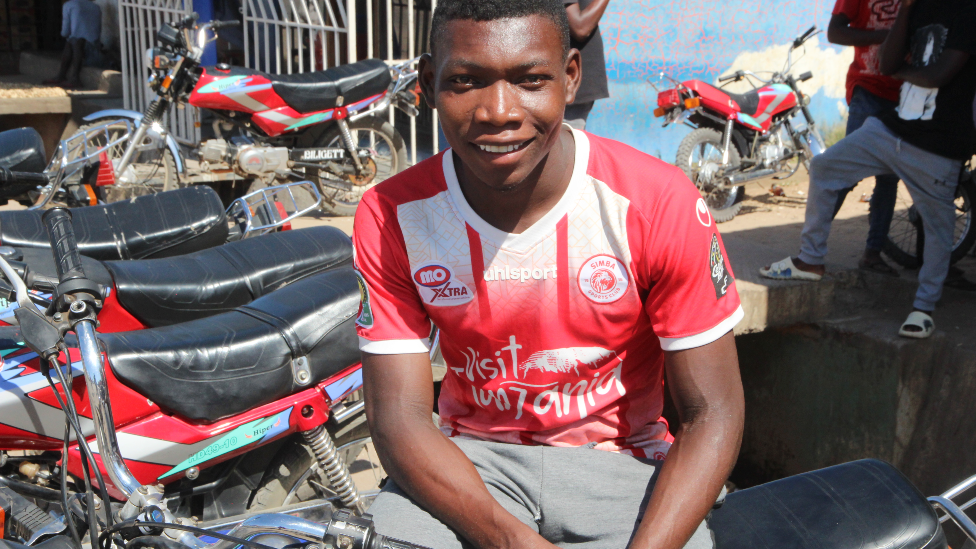
"I have not been able to find a job. All the places I go and ask, they say I need to pay to be accepted."
But he says he cannot afford to pay any bribes: "That's why I am still here."
This group of 36 riders from Mocímboa have chosen Issufo Momade to be their chief - someone to represent them when meditation is needed.
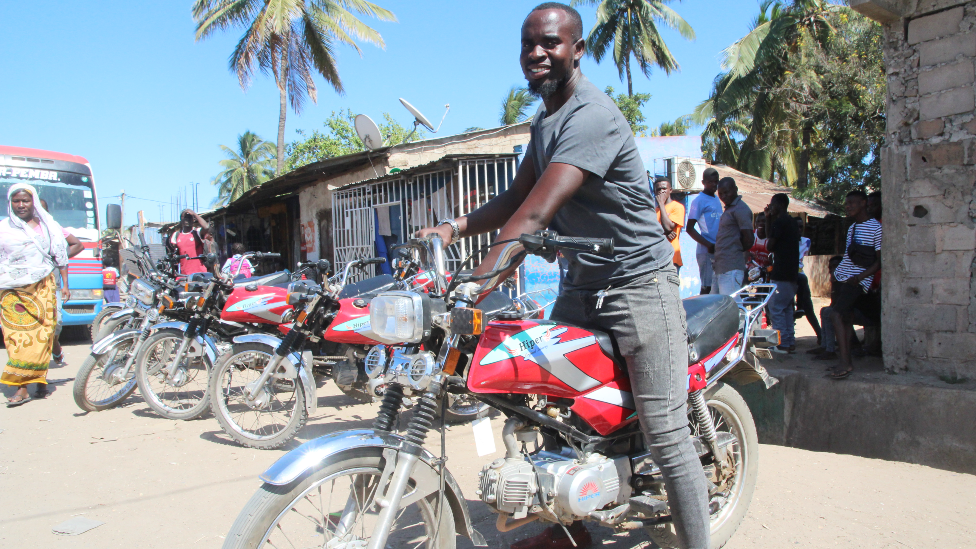
His position is not an official requirement - motorcycle regulations are minimal, namely a one-off registration fee of $47 to own a bike.
For Issufo the main challenge for the riders is that there is no standard rate for journeys - so prices fluctuate.
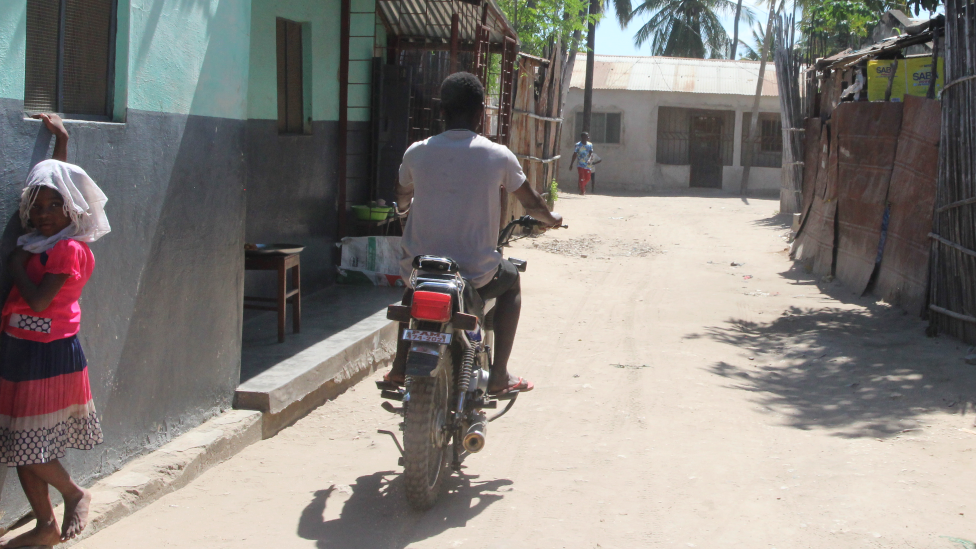
Looking in the direction of a local Pemba group of drivers, Issufo says: "We have too much competition." They all agree.
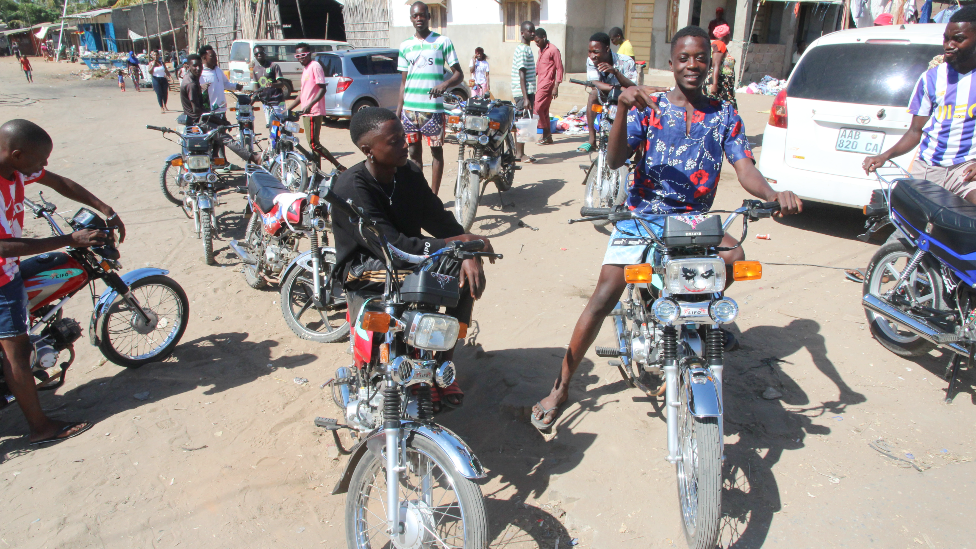
None of the Mocímboa riders have ever received humanitarian aid, though some of their female relatives get food vouchers.
Most of them would like to return to Mocímboa, but only when they are certain that the situation is safe - which despite troops from nearby countries joining the fightback against the militants last year, does not look imminent.
"It's hard. I struggle. The little I can get I split between school and home," says Pelé, who will be going into his final year in January.
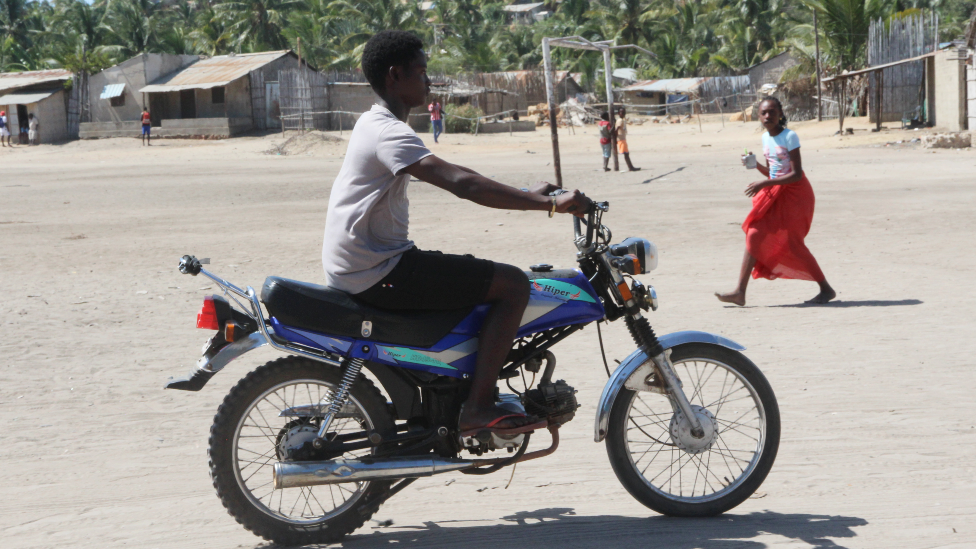
Afterwards he would like to train to become an electrician, but he cannot afford college fees. His best bet would be to get an apprenticeship, but given Amade's experience this could be difficult
"Still, I have to be grateful," says Pelé. "I don't have much but if I did I would study and follow my dream."
Estacio Valoi and Robyn Hunter are freelance journalists based in Pemba.
Images subject to copyright
More on Mozambique's insurgency: